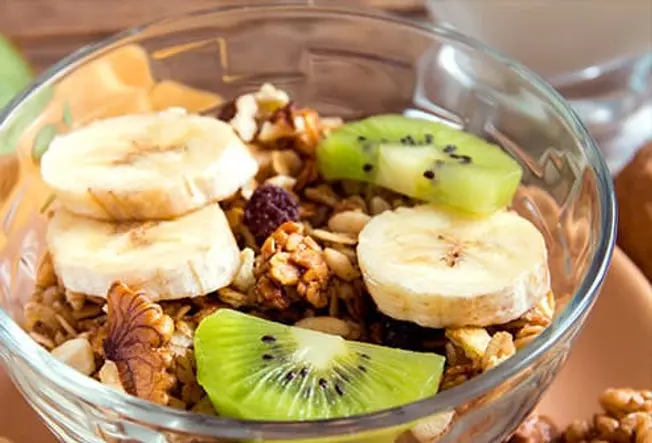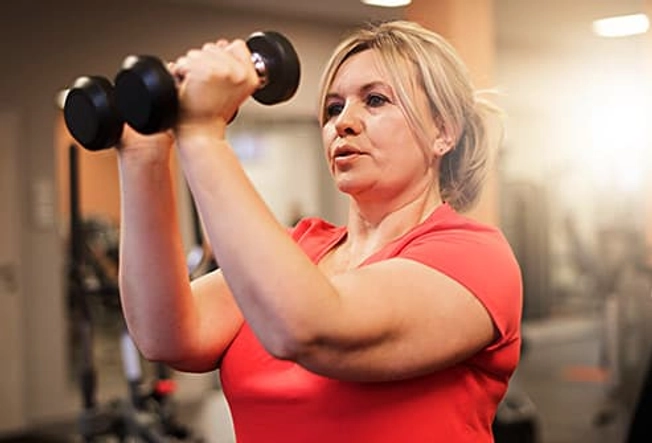12 Habits of Super-Healthy People


Have Breakfast
It's important for a bunch of reasons. It jump-starts your metabolism and stops you from overeating later. Plus, studies show that adults who have a healthy breakfast do better at work, and kids who eat a morning meal score higher on tests. If a big plateful first thing isn't for you, keep it light with a granola bar or a piece of fruit. Just don't skip it.

Plan Your Meals
It'll help you save time and money in the long run. Block out some time, then sit down and consider your goals and needs. Do you want to lose weight? Cut back on sugar, fat, or carbs? Add protein or vitamins? Meal prep keeps you in control. You know what you're eating and when. A bonus: It'll be that much easier to skip those doughnuts in the breakroom at work.

Drink Plenty of Water
It can do so many good things for you. Staying hydrated is at the top of the list, but it may also help you lose weight. Another reason to go for H2O? Sugary drinks are linked to obesity and type 2 diabetes. If you aren't a fan of plain water, add flavor with slices of orange, lemon, lime, watermelon, or cucumber.

Take an Exercise Break
Don't just grab another cup of coffee -- get up and move. Do some deep lunges or stretches. It's great for your body and mind. Just 30 minutes of walking five times a week may help keep the blues at bay. And if you can't do those minutes all at once, short bursts help, too.

Go Offline
Checking your email and social media a lot? Sure, your friends' and family's latest updates are just a click away, but do you really need to see pictures of your cousin's latest meal? Let it wait until morning. Set a time to log off and put the phone down. When you cut back on screen time, it frees you to do other things. Take a walk, read a book, or help your cousin chop veggies for their next great dinner.

Learn Something New
New skills help keep your brain healthy. Sign up for a dance class or a creative writing workshop. Better yet, master a new language. The mental work it takes can slow the signs of aging and may even delay the effects of Alzheimer's disease.

Don't Smoke
If you light up, quit. It's a big move toward better health. Your body repairs itself quickly. As soon as 20 minutes after your last cigarette, your heart rate and blood pressure drop. Why wait? Kick the habit, today. Your doctor will be happy to help you get started.

Sleep Well
There are almost too many benefits to list. A good night's sleep keeps you in a better mood, sharpens memory and focus, and helps you learn new things. In the long term, it lowers your risk of heart disease and helps you keep trim. Aim to get 7 to 9 hours a night. For the best rest, do it on schedule -- turning in and waking up at about the same times every day.

Train Your Muscles
Strength training helps your body trade fat for muscle mass. That means you'll burn more calories even when you're being a couch potato. But these workouts can also help you slim down, strengthen your heart, and build up your bones. Do strength-training exercises -- like push-ups, lunges, and weight lifting -- at least twice a week.

Head Outdoors
A few minutes in the sunshine raises vitamin D levels, and that's good for your bones, your heart, and your mood. Plus, being outside means you're more likely to move your body instead of parking it in front of the TV or computer. Choose nature over city streets, if you can. One study found that people who strolled in urban green spaces were calmer than people who walked in built-up areas.

Keep Your Balance
If you're young and active, good balance will help you avoid injuries. If you're older, it will keep you active longer and lower the chances you'll fall and break a bone. No matter your age, good balance means better muscle tone, a healthier heart, and greater confidence. Yoga and tai chi are great ways to work on it, but just about anything that keeps you moving, even walking, can help.

Be Mindful
It can mean meditating or simply stopping to smell the roses. However you do it, studies show mindfulness slashes stress, relieves pain, and improves your mood. And scientists are beginning to understand how. One study found that 8 weeks of regular meditation can change parts of your brain related to emotions, learning, and memory. Even washing dishes can be good for your brain, as long as you do it mindfully.
